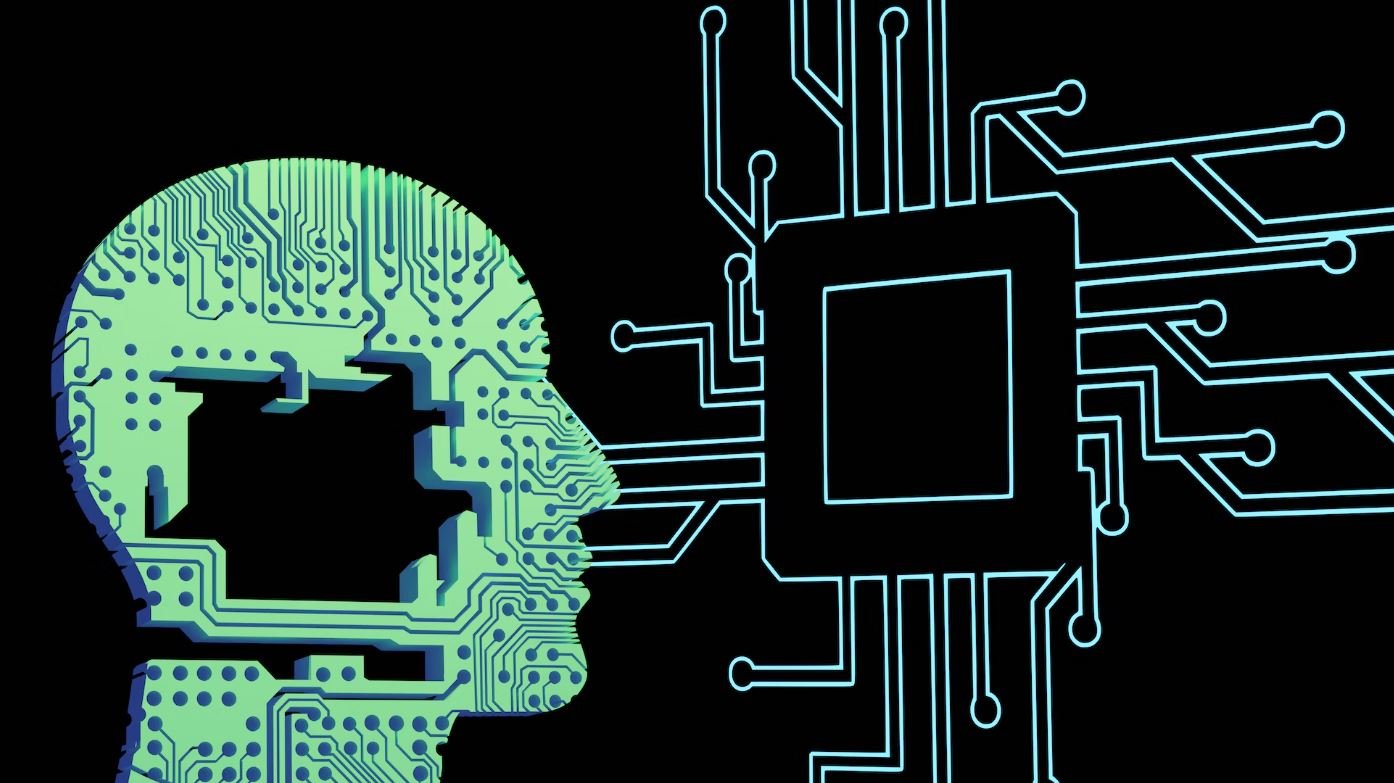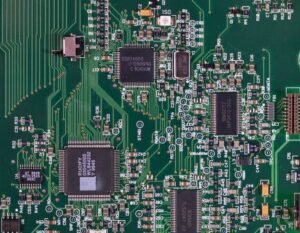Artificial Intelligence Product Owner
Artificial Intelligence (AI) is revolutionizing various industries, and businesses are increasingly adopting AI technologies to stay competitive. As the demand for AI products grows, the role of an Artificial Intelligence Product Owner becomes essential in driving successful product development and implementation. In this article, we will explore the critical responsibilities of an AI Product Owner and understand the skills required to excel in this role.
Key Takeaways:
- An Artificial Intelligence Product Owner plays a crucial role in driving successful development and implementation of AI products.
- The responsibilities include prioritizing features, managing stakeholders, and ensuring alignment between business goals and AI capabilities.
- Strong technical knowledge, excellent communication skills, and a deep understanding of AI are key requirements for an AI Product Owner.
- Collaboration with cross-functional teams, continuous learning, and being adaptable are essential qualities to succeed in this role.
Understanding the Role
The AI Product Owner serves as the bridge between business stakeholders and technical teams, ensuring that AI products meet the business objectives and deliver value to end-users. **They are responsible for driving the product vision**, defining features, and prioritizing the product backlog based on user needs and market analysis. With a deep understanding of AI technologies and their potential applications, **the AI Product Owner identifies opportunities to leverage AI capabilities** and guides the development team accordingly. By staying up-to-date with the latest AI advancements and industry trends, the Product Owner can make informed decisions regarding the product roadmap.
*The application of AI in various industries has paved the way for exciting opportunities in product development and ownership.*
Key Responsibilities
Running an AI product development cycle involves juggling several responsibilities. Here are the key tasks of an AI Product Owner:
- Collaborating with stakeholders to understand business requirements and prioritizing features accordingly.
- Defining user stories and creating a product backlog that aligns with the product vision.
- Ensuring effective communication and collaboration across cross-functional teams.
- Monitoring and analyzing market trends and customer feedback to determine areas of improvement and new feature development.
- Making data-driven decisions based on AI analytics and insights.
- Conducting user acceptance testing to ensure product quality and user satisfaction.
- Tracking and reporting key performance indicators (KPIs) to evaluate product success and iterate accordingly.
Skills Required
To excel as an AI Product Owner, certain skills are crucial:
- Strong technical knowledge of AI technologies, algorithms, and frameworks.
- Excellent communication skills to effectively collaborate with diverse stakeholders.
- Deep understanding of business strategies and the ability to align AI capabilities with business goals.
- Analytical mindset to interpret AI insights and make data-driven decisions.
- Adaptability to rapidly changing AI landscape and willingness to continuously learn and upgrade skills.
- Leadership qualities to drive teams towards successful product outcomes.
| Skill | Rating (1-5) |
|---|---|
| Technical Knowledge | 5 |
| Communication Skills | 4 |
| Business Alignment | 5 |
| Analytical Mindset | 4 |
| Adaptability | 5 |
| Leadership Qualities | 3 |
Collaboration and Adaptability
Collaboration is a critical aspect of an AI Product Owner’s role. Working closely with cross-functional teams such as data scientists, engineers, and designers ensures **a holistic approach to product development**. As AI technologies continue to advance rapidly, **being adaptable and continuously learning** is essential for staying ahead of the curve. By fostering a culture of collaboration and encouraging continuous learning, AI Product Owners can drive innovation and ensure the successful delivery of AI products.
*Embracing the dynamic nature of AI and fostering collaboration leads to groundbreaking AI product advancements.*
Conclusion
In this digital age, the role of an AI Product Owner is instrumental in creating and implementing successful AI products. By understanding the key responsibilities, required skills, and the importance of collaboration and adaptability, individuals in this role can effectively drive innovation and provide valuable AI solutions to businesses and users alike. Are you ready to take on the challenge of being an Artificial Intelligence Product Owner?
| Responsibilities | Skills |
|---|---|
| Prioritizing features | Strong technical knowledge |
| Managing stakeholders | Excellent communication skills |
| Aligning business goals and AI capabilities | Deep understanding of AI |
| Collaborating with cross-functional teams | Adaptability |

Common Misconceptions
Artificial Intelligence Product Owner Title
Artificial Intelligence (AI) product owners play a crucial role in developing and managing AI-powered products. However, there are several misconceptions surrounding this title that can lead to misunderstanding of their responsibilities and capabilities. It is important to address these misconceptions to have a clear understanding of what an AI product owner actually does.
- AI product owners are not only responsible for technical aspects of AI projects, but also for understanding business requirements and translating them into AI solutions.
- AI product owners collaborate closely with data scientists and machine learning engineers to ensure the development and implementation of effective AI models.
- AI product owners are not solely focused on one-time development projects but also play a vital role in the ongoing management and improvement of AI products.
Misconception: AI product owners are solely responsible for building AI models
One common misconception about AI product owners is that they are the sole contributors to building AI models. In reality, AI product owners work closely with data scientists and machine learning engineers to develop and implement AI models that align with business requirements.
- AI product owners collaborate with data scientists and machine learning engineers to define requirements and objectives for AI models.
- They work alongside data scientists to analyze and prepare the data that will be used to train AI models.
- They provide domain expertise and feedback to data scientists and engineers during the development and fine-tuning stages of AI model creation.
Misconception: AI product owners only focus on technical aspects
Another misconception is that AI product owners are primarily focused on technical aspects of AI projects. While technical knowledge is essential, AI product owners also need a deep understanding of business requirements and the ability to translate them into effective AI solutions.
- AI product owners work closely with stakeholders to gather and analyze business requirements and objectives.
- They collaborate with stakeholders to define success criteria and measure the performance and impact of AI models on business metrics.
- They are responsible for ensuring that AI solutions align with the organization’s overall strategy and goals.
Misconception: AI product owners are only involved in development projects
It is also a misconception that AI product owners are solely involved in one-time development projects. In reality, their role extends beyond development stages to include ongoing management and improvement of AI products.
- AI product owners continuously monitor and evaluate the performance of AI models in real-world scenarios.
- They gather feedback from users and stakeholders to identify areas of improvement and new feature requirements.
- They prioritize and manage the product roadmap, balancing development efforts with business needs and technological advancements.
Misconception: AI product owners can replace data scientists or machine learning engineers
Some people mistakenly believe that AI product owners can replace data scientists or machine learning engineers. However, AI product owners have a distinct role focused on bridging the gap between technical development and business requirements.
- AI product owners bring domain expertise and a business-oriented perspective, complementing the technical skills of data scientists and machine learning engineers.
- They collaborate with data scientists and engineers to define AI project scope, timeline, and objectives.
- AI product owners ensure effective communication and alignment between technical teams and stakeholders throughout the AI development process.

Artificial Intelligence in Healthcare
In recent years, artificial intelligence (AI) has revolutionized the healthcare industry. It has affected various aspects such as diagnosis, treatment, research, and patient care. Here are some interesting statistics related to the implementation and impact of AI in healthcare:
| Statistic | Value |
|---|---|
| Global AI healthcare market size | $6.6 billion |
| Expected CAGR of AI in healthcare market by 2028 | 44.9% |
| Number of healthcare organizations using AI | 70% |
| Prediction accuracy of AI models in diagnosing diseases | 90% |
| Estimated healthcare cost savings due to AI implementation | $150 billion by 2026 |
AI-Powered Virtual Assistants in Finance
The finance industry is experiencing significant advancements through artificial intelligence, particularly with the introduction of AI-powered virtual assistants. These assistants have transformed the way financial tasks are performed. Let’s explore some fascinating facts about the utilization of AI virtual assistants in finance:
| Statistic | Value |
|---|---|
| Percentage of financial institutions using virtual assistants | 85% |
| Time reduction in customer query handling using virtual assistants | 80% |
| Number of virtual assistants used by JPMorgan Chase | 25,000+ |
| Annual savings due to virtual assistants in the finance industry | $8 billion |
| Percentage of financial advisors using AI to improve investment advice | 75% |
AI-Powered Chatbots in Customer Service
Organizations across different sectors are leveraging AI-powered chatbots to enhance their customer service and support functions. The widespread adoption of chatbots has led to remarkable improvements in customer satisfaction. Here are some compelling facts about the implementation of AI chatbots in customer service:
| Statistic | Value |
|---|---|
| Percentage of customer interactions expected to be handled by chatbots by 2022 | 85% |
| Reduction in customer service costs through chatbot utilization | 30% |
| Customer satisfaction rate when interacting with chatbots | 80% |
| Number of enterprises set to adopt AI chatbots by 2025 | 95% |
| Time saved by AI chatbots for businesses annually | 2.5 billion hours |
AI-Driven Personalization in E-Commerce
Artificial intelligence is reshaping the e-commerce landscape, providing personalized experiences to customers and empowering businesses to make data-driven decisions. The integration of AI in e-commerce has brought about significant transformations. Let’s explore some fascinating data related to AI-driven personalization in the e-commerce sector:
| Statistic | Value |
|---|---|
| Percentage of leading e-commerce websites using AI for personalized product recommendations | 35% |
| Increase in average order value through AI-based product recommendations | 30% |
| Revenue increase attributed to AI-driven personalized marketing | $18 billion |
| Number of businesses leveraging AI for customer retention strategies | 60% |
| Percentage of online shoppers preferring personalized experiences | 63% |
AI Applications in Manufacturing
The manufacturing industry has witnessed significant advancements with the adoption of artificial intelligence, revolutionizing production processes and improving efficiency. Here are some interesting statistics related to the implementation of AI applications in manufacturing:
| Statistic | Value |
|---|---|
| Number of manufacturers adopting AI-powered predictive maintenance | 73% |
| Percentage increase in overall equipment efficiency (OEE) through AI | 20% |
| Reduction in unplanned downtime through AI-driven maintenance | 45% |
| Estimated global manufacturing AI market size by 2026 | $16.6 billion |
| Projected CAGR of AI usage in manufacturing | 49.7% |
AI in Education: Revolutionizing Learning
Artificial intelligence is transforming education, providing personalized learning experiences, and enabling efficient classroom management. The implementation of AI in education has immense potential to reshape how students learn and teachers teach. Let’s explore some intriguing data related to AI in education:
| Statistic | Value |
|---|---|
| Percentage of educational institutions already using AI | 55% |
| Reduction in grading time through AI-powered automated grading systems | 75% |
| Improvement in student test scores through AI tutoring systems | 22% |
| Number of AI-powered customized learning platforms | 100+ |
| Projected global AI in education market size by 2027 | $3.68 billion |
AI-Enabled Cybersecurity Solutions
Cybersecurity is a critical concern in the digital era, and artificial intelligence has emerged as a potent ally in combating cyber threats. AI-powered cybersecurity solutions offer enhanced threat detection, prevention, and response capabilities. Here are some intriguing facts about AI-enabled cybersecurity:
| Statistic | Value |
|---|---|
| Percentage increase in cybersecurity detection rates through AI | 82% |
| Reduction in cybersecurity incident response time using AI automation | 70% |
| Number of organizations adopting AI for threat hunting | 48% |
| Estimated size of the global AI cybersecurity market by 2028 | $38.2 billion |
| Percentage of cybersecurity professionals relying on AI for threat detection | 65% |
AI Advancements in Transportation
The transportation industry is undergoing a transformation facilitated by artificial intelligence, leading to increased efficiency, safety, and sustainability. AI advancements are revolutionizing various aspects of transportation, from autonomous vehicles to route optimization. Let’s explore some fascinating statistics related to AI in transportation:
| Statistic | Value |
|---|---|
| Annual fatalities prevented through AI-enabled smart traffic management | 30,000+ |
| Percentage reduction in traffic congestion due to AI-driven route optimization | 20% |
| Number of autonomous vehicles expected to be on the road by 2030 | 20 million |
| Projected global market value of AI in transportation by 2028 | $3.5 billion |
| Percentage of transportation companies investing in AI technology | 80% |
Social Media Insights with AI
Artificial intelligence is transforming social media analytics, allowing businesses to gain valuable insights into customer behavior, preferences, and sentiments. AI-powered algorithms help extract actionable intelligence from vast amounts of social media data. Let’s look at some interesting statistics related to AI insights in social media:
| Statistic | Value |
|---|---|
| Percentage of marketers using AI-driven social media analytics | 62% |
| Improvement in customer sentiment analysis through AI automation | 40% |
| Revenue growth attributed to personalized social media campaigns powered by AI | 45% |
| Number of social media management tools incorporating AI | 200+ |
| Estimated global social media analytics market value by 2027 | $15.6 billion |
The Future of AI
Artificial intelligence has already made significant strides across numerous sectors, enhancing productivity, decision-making, and customer experiences. As AI technology continues to evolve, further advancements are expected, benefiting society on a larger scale. The future of AI holds exciting possibilities and potential, promising a world with enhanced capabilities and improved efficiency across various domains.
In conclusion, artificial intelligence has become an indispensable part of the modern world, transforming industries and revolutionizing how we live and work. Its wide-ranging applications, from healthcare to finance, customer service to education, manufacturing to cybersecurity, transportation to social media analytics, demonstrate its transformative power. As AI continues to advance, its potential for innovation, automation, and data-driven decision-making will fuel further growth and bring numerous benefits to businesses and society as a whole.
Artificial Intelligence Product Owner – Frequently Asked Questions
What is the role of an Artificial Intelligence Product Owner?
What qualifications are required to become an Artificial Intelligence Product Owner?
What are the key responsibilities of an Artificial Intelligence Product Owner?
How does an Artificial Intelligence Product Owner collaborate with cross-functional teams?
What challenges do Artificial Intelligence Product Owners commonly face?
How can an Artificial Intelligence Product Owner ensure successful AI implementation?
What are the benefits of having an Artificial Intelligence Product Owner?
What skills are important for an Artificial Intelligence Product Owner?
What industries can an Artificial Intelligence Product Owner work in?
What is the future outlook for Artificial Intelligence Product Owners?





